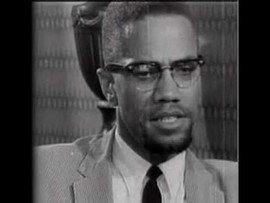 Written by Serie McDougal Malcolm X once compared racist conservatives to wolves who show their teeth and do not try to hide the harm they mean to Black people. But, he also explained how the racist liberal approach was much more like that of the fox. While the wolf shows its teeth and snarls, the fox shows its teeth and pretends to be smiling. The fox, as depicted in most folk tales, is always more deceptive and dangerous because its ill-will remains hidden behind good intentions. The Arizona based conservative attack on Ethnic Studies was very direct in its rejection of the core values of Ethnic Studies, depicting it as a threat to national unity.  The Arizona style approach used to attack Ethnic Studies would not work in San Francisco. Nevertheless, the good intentions of San Francisco State University are embodied in the values of its mission statement, which touts a commitment to diversity, social justice, and community. The College of Ethnic Studies at San Francisco State University is founded on several principles including:
 Evidence based research demonstrates the positive effects that Ethnic Studies curriculum has on student academic achievement, student engagement, graduation rates, and self-efficacy. Under the auspices of “a new budgetary discipline”, the current proposal to significantly cut the budget of the College of Ethnic Studies is a reflection of the value that the university leadership currently places on diversity, social justice, and community. The university is claiming that the college spends too much in its efforts to serve underserved students. Not at all ironically, as the budget allocation for the College of Ethnic Studies is diminished, the University is currently planning to resource its growing athletic program. The proposed cuts would result in a 40% loss of Ethnic Studies courses, making it difficult for students to take the courses they would need to graduate. This would also impact our departments’ ability to offer viable degree granting programs. These courses also play a big role in diversifying the university’s curriculum. Ethnic Studies lecturers would lose their positions, meaning the college would lose 50% of its teachers. The Cesar Chavez Institute, which is dedicated to research and community empowerment, would be shut down. The graduate program would no longer be able to offer courses or have a coordinator. The Ethnic Studies Resource and Empowerment Center which advises students on their career goals, academic goals, and funding opportunities would also be shut down. Ethnic Studies work-study student positions would be eliminated. Lastly, professors would get no release time or sabbaticals. While the approach taken in Arizona was to institute a ban on Ethnic Studies, the budget proposal of the president and provost at San Francisco State is fashioned to economically bleed the one and only College of Ethnic Studies to the point that it can no longer function. As Malcolm X urged us to remember, the fox and the wolf come from the same family of canines, just as attacks on Ethnic Studies come in many forms but are fixed on the same objective. They are a part of the same racist conservative political agenda to roll-back the democratization of higher education that students fought for in the 1960s. The true fear of Africana Studies or any of the Ethnic Studies departments, is not their celebration of diversity, it’s the fact that they equip students with the intellectual and academic resources and consciousness to go out into the world, challenge oppression, inequity, and shift the balance of power. With that said, the President of the University’s office has a fundamental misunderstanding of the climate of the times that we currently live in. This would be the time to help them understand that the College of Ethnic Studies will settle for no less than an increase in funding for its work. Without the College of Ethnic Studies, the university’s fund raisers could not move about the state and country bragging about the unique diversity of its campus. With less money, the College of Ethnic Studies’ students, faculty, programs, and institutions have done a disproportionate share of the work of serving underserved populations because it’s what we love to do. When you hear the president make a claim about how diverse the campus is in public from now on, he should be met with a resounding chorus of “40%!!!”, because that’s how many Ethnic Studies courses would have to be cut to balance the budget he has proposed. Our students, faculty and supporters are ready to battle with whatever may come, wolves or foxes alike. Anyone can send a letter advocating on behalf of the college to: President Leslie Wong: ADM 562 – (415) 338-1381 – [email protected] Provost Sue Rosser: ADM 455 – (415) 338-1141 – [email protected]
0 Comments
|
Archives
April 2022
Categories
All
|
 RSS Feed
RSS Feed